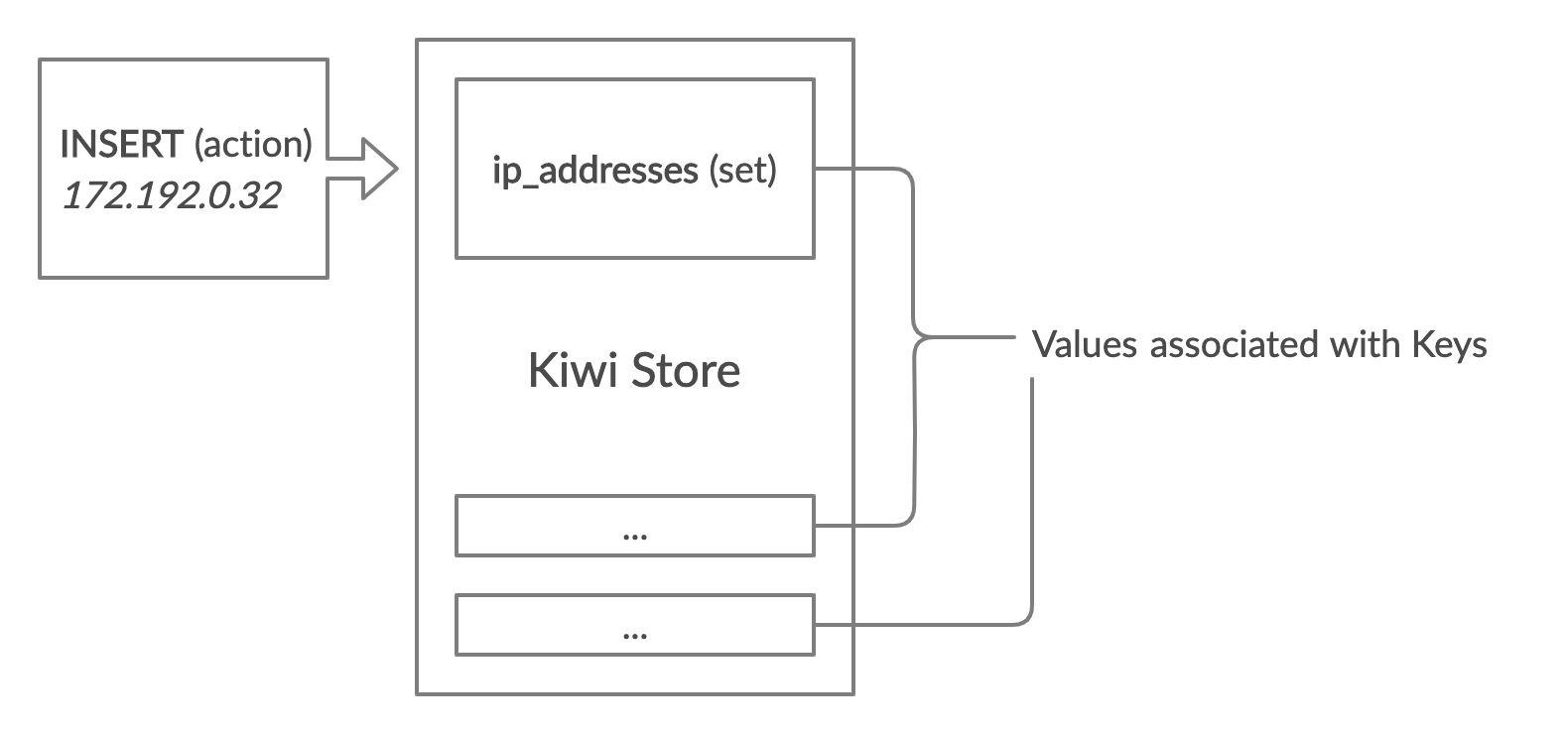# Introduction
You can think of Kiwi as thread safe global variables. This kind of library comes in helpful when you need to manage state accross your application which can be mutated with multiple threads. Kiwi protects your keys with mutex locks so you don't have to.
Though the above paragraph gives a gist about what Kiwi is, it's much more than just "global variables".
# How it works
Kiwi creates a store which can be thought of as the centralized repository
to access all your keys. A store is the entry-point for any action that
can take place on the value associated with the key.
Let's take an example to understand what we mean by above paragraph:
Say, you have multiple servers with which your application interacts and you
need to store their IP addresses (which are dynamic). So essentially you need
a set of IP addresses where you can add or remove IP addresses.

For implementing the above example in Kiwi, you will create a store, add the
key = "ip_addresses" with value of set type. To interact with the key, you
will invoke (or Do) an action, i.e., add IP address or remove IP address
in this case.
# Features
Supports various types: All values in Kiwi have a type. It is not restricted to a string value. So if you need to store a map, you don't need to store a JSON as a string. You can use the
hashtype.Extendable types: Even though the core package comes with a limited number of data types (inspired by Redis), different data types can be implemented and integrated very easily with Kiwi. As an example, look at the core value types. All these types are implemented assuming they are third-party value types.
Go Package: Kiwi was made with the motivation to be able to integrate it with a go application directly without any extra moving parts. Kiwi, with your application results in a single binary.
Did you know
Kiwi is a result of us trying to minimize moving parts in another application we're developing. Want to know more about that project? Read this blog post.
JSON compatible: Kiwi's store and values are all JSON compatible, i.e., they can be converted into JSON or loaded from JSON. In-case you need to store some value in persistent storage or just backup your store in case of failure, you can do so as JSON.